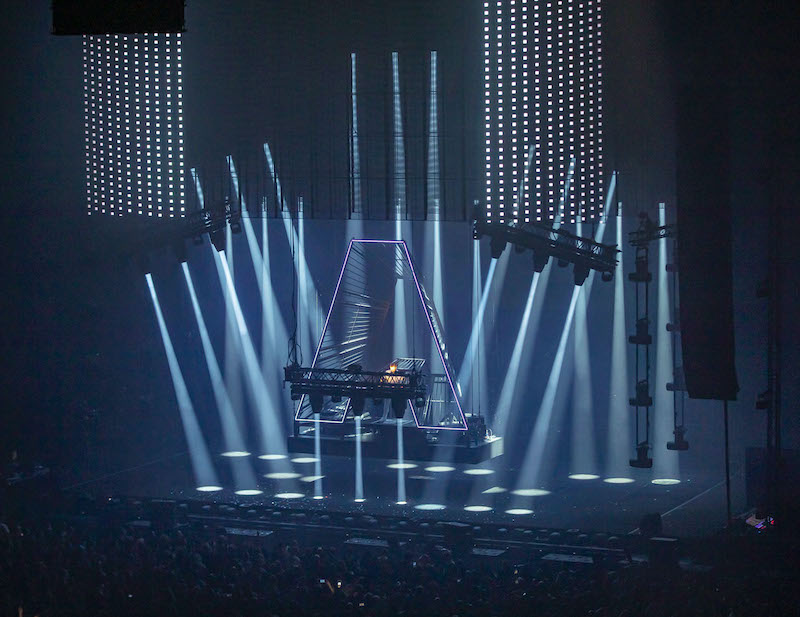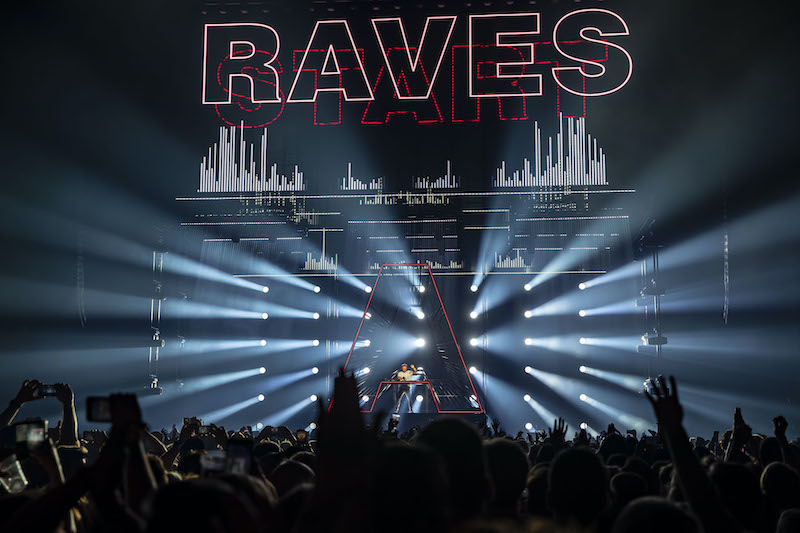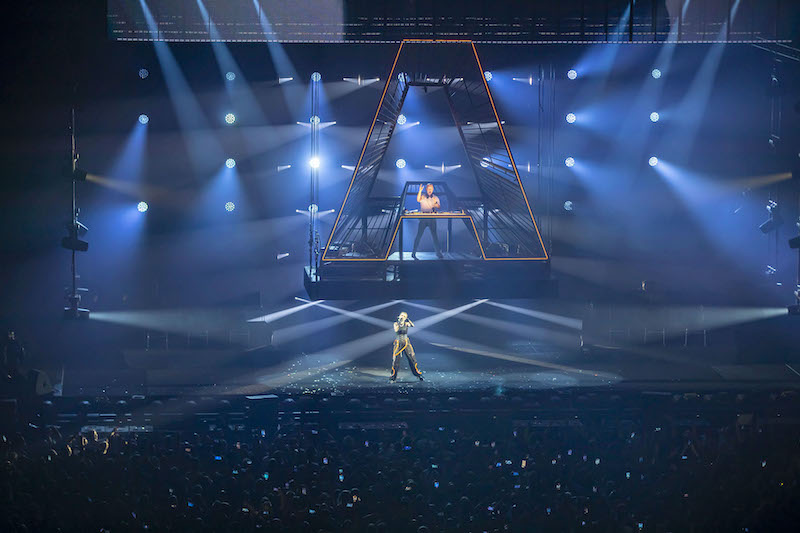
Armin van Buuren staged five blockbusting “This Is Me” shows at Amsterdam’s Ziggo Dome, designed by his long-term LD Marc Heinz, who included more than 300 Robe moving lights on the rig.
Postponed twice due to Covid, the shows unleashed all the energy and imagination you would expect from an Armin show. With a vibrant line up of dancers, guest vocalists and musicians, the show was every bit the visual and sonic extravaganza for which Armin is known, from A State of Trance to Armin Only , he rocks the world in his individual way.
Marc put these serious quantities of Robe – 161 Pointes, 84 MegaPointes, 90 Spiiders and 9 BMFL WashBeams with a RoboSpot system on his spec to deliver “all the essential features needed – brightness, great colors and effects” to make impact for these shows.

He and assistant LD Jordy Veenstra worked closely with the TWOFIFTYK/EYESUPPLY team led by creative director Sander Reneman and show director Sophie Reneman, who presented the dramatic set and visual concepts that defined the performance space. At the heart of this was a dynamic 20 x 14 meter box centerpiece that framed an elegant A-shaped DJ booth containing Armin’s decks and performance tech.
Central to the scenic design, above the box were four large moving LED screens that flew in and out. This ‘Pandora’s Box’ – as the crew dubbed it – transformed the space architecturally throughout the show, revealing many surprises in the process. It drew the visual focus to Armin’s workspace from where he unfolded his story with the screen content assisting in content and context, and live camera feeds, directed by JW Schram.
This powerful idea was also Marc’s starting point. He knew that with four individually flying screens, his lighting design would have to consider which lights could or could not be used in relation to which specific sections of the screen were in or out during the 50-plus motion cues that were developed for the set.
“The challenge was to establish what we could use, where, when and how on the rig to do our part of making sure the show was memorable for the audience,” he explained.
Well known for his work in theatre and opera, Marc has developed a special crossover lighting aesthetic that fuses the drama and intensity of these two disciplines with the unbridled energy of electronic dance vibes.

The core of the lighting was positioned on nine automated lighting trusses rigged in between the four moving screens. The screens flew in and out and also pitched as the three and a half hours show evolved.
These nine trusses were loaded with four Pointes together with some other fixtures. Pointes were chosen for their small size, light weight and adaptability, which was ideal for these positions, and because “they are an ultimately versatile effects light,” stated Marc. They enabled him to create striking color and beam effects around the box area directly above the artists.
The balance of the Pointes was deployed all around the front and sides of the stage with some underneath it.
The 80 Spiiders were in 10 rows of eight fixtures on ladders upstage of the box along with the 72 x MegaPointes, spaced out in a rectangular shape in similar positions. All these fixtures delivered a battery of mind-blowing effects as well as for blasting through the semi-transparent screens at times for completely different looks.
The winning combination of these two fixtures provided numerous dramatic power looks and luminescent energy onto the stage and artists and beyond, shooting into the crowds right to the back of the arena and bringing “endless additional possibilities to the Pandora’s Box,” noted Marc.
The main function of the BMFLs on a downstage static truss was to provide key light for guest performers, a line up which was fluid in the run up to these shows as the live music industry – and people’s commitments – returned with a massive post-Covid bang.
The two BMFL WashBeams on the front (most downstage) motion truss were controlled via the RoboSpot remote follow system.
Also on the rig were loads of strobes and LED battens, some LED wash and profile moving lights, all controlled via two grandMA3 consoles programmed by Michael Severeens, a long time Armin lighting collaborator who was back on the FOH team running and programming the main show console.
Jeroen van Geffen operated the second console, which took care of all the broadcast lighting, follow spots and side and rear specials.

Marc and his FOH team WYG’d the show for two weeks at TWOFIFTYK’s studio in Eindhoven and then moved to a suite in the Ziggo Dime during the show get in and build where they visualized in Depence2, programmed and finessed.
Some parts of the light show were time coded and others were improvised. Marc is “always delighted” to be working with all of these “incredibly talented individuals.” He particularly likes TWOFIFTYK’s approach to creating live art: “They think out-of-the-box every time and present us all with the chance to also think independently and produce some very creative and inventive solutions.”
He enjoys working on Armin’s shows generally, which blend elements from multiple visual and sonic genres and are constantly interesting and thought-provoking.
“He’s very intelligent and very grounded,” offered Marc when asked what it’s like working with one of the number one DJs in the world. There is always a great atmosphere around the production and that is great for encouraging the levels of achievement involved in these performances!”
Armin’s “This Is Me” technical production package was delivered by ALDA Events (Joey Wijnen) and TWOFIFTYK (Jordy van Straten), and Margus Spekkers was the stage manager ensuring that everything was smooth and well coordinated on and off stage.
The lighting equipment was sourced from several different rental companies during an exceedingly busy period. Flashlight Ampco Rental supplied the motion control system and lasers were supplied by Laser Image and operated by Stefan Ünal.
Photos by Louise Stickland


